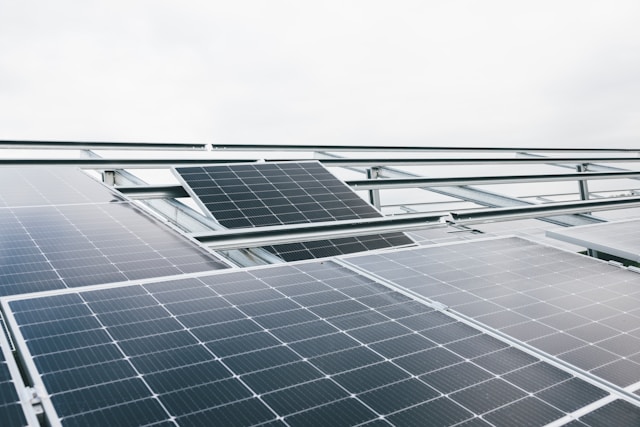How Air Compressors Enhance the Production of Solar Panels
The increasing demand for renewable energy sources, particularly solar power, has led to significant advancements in solar panel production technologies. Among the key components essential to this process are air compressors. These devices are crucial at various stages of solar panel manufacturing, ensuring precision, efficiency, and quality. This article explores the indispensable role air compressors play in the production of solar panels.
Overview of Solar Panel Production
The production of solar panels involves several critical steps, including the creation of silicon wafers, cell fabrication, module assembly, and rigorous quality testing. Each step requires specific conditions and precise control to ensure the highest quality and efficiency of the final product. Air compressors are vital in maintaining these conditions and enabling various manufacturing processes.
Silicon Wafer Production
The initial phase in solar panel manufacturing involves producing silicon wafers. Large silicon blocks are sliced into thin wafers using wire saws. Air compressors are essential in this stage for several reasons:
- Cooling and Lubrication: The wire saws generate significant heat during the cutting process. Air compressors power the cooling and lubrication systems, preventing overheating and ensuring smooth and precise cuts. This minimizes the risk of defects and micro-cracks in the wafers, which can compromise the efficiency of the solar cells.
- Debris Removal: Compressed air is used to blow away silicon dust and debris generated during the slicing process. Keeping the environment clean is crucial to prevent contamination, which can negatively impact the quality of the wafers.
Cell Fabrication
Following wafer production, the next step is cell fabrication. This process includes doping, which involves adding impurities to the silicon to create an electric field, and the application of anti-reflective coatings. Air compressors contribute significantly to these processes:
- Doping: Precise control of gas flow is essential during the doping process to ensure the correct concentration of impurities. Air compressors provide the necessary pressure and flow control, facilitating the precise application of dopants.
- Coating Application: Anti-reflective coatings are applied to the wafers to maximize light absorption. Compressed air is used in spray coating systems to ensure even and defect-free application, which is critical for the efficiency of the solar cells.
Module Assembly
Once the solar cells are fabricated, they are assembled into modules. This involves connecting the cells, encapsulating them in protective materials, and mounting them onto a frame. Air compressors are extensively used in this stage for:
- Automation: Many assembly processes are automated to enhance efficiency and precision. Pneumatic tools and robotic systems powered by compressed air are employed for tasks such as cell placement, soldering, and lamination. These tools ensure consistent and accurate module assembly.
- Sealing and Bonding: Ensuring the solar cells are securely encapsulated and protected from environmental factors is crucial for their longevity and performance. Compressed air is used in adhesive application systems to create strong, uniform bonds between materials.
Quality Testing
Quality control is a vital aspect of solar panel production, ensuring each panel meets industry standards and performs optimally. Air compressors play a significant role in various testing procedures:
- Thermal Cycling: Solar panels undergo thermal cycling tests to simulate extreme temperature fluctuations they will experience in real-world conditions. Compressed air is used in environmental chambers to control the temperature precisely during these tests.
- Leak Detection: Ensuring the panels are hermetically sealed is essential to prevent moisture ingress, which can damage the cells. Compressed air is used in leak detection systems to test the integrity of seals and identify potential weaknesses.
Energy Efficiency and Maintenance
The efficiency of air compressors themselves is crucial in the production of solar panels. Modern air compressors are designed to be energy-efficient, reducing the overall energy consumption of the manufacturing facility. Regular maintenance of air compressors ensures consistent performance and prevents downtime, which can disrupt the production process.
Selecting the Right Air Compressor
Choosing the appropriate air compressor for solar panel production depends on various factors, including the specific requirements of each manufacturing stage, production scale, and energy efficiency considerations. Partnering with a reliable supplier is essential to access high-quality, efficient air compressors tailored to the needs of solar panel manufacturers.
Conclusion
Air compressors are indispensable in the production of solar panels, contributing to every stage from silicon wafer production to final quality testing. Their role in ensuring precision, efficiency, and reliability cannot be overstated. As the solar industry continues to grow, advancements in air compressor technology will play a vital role in supporting the development of cleaner, more efficient energy solutions.
For high-quality, energy-efficient air compressors tailored to your manufacturing needs, visit Control Gear. Control Gear offers a range of top-tier air compressors designed to enhance the efficiency and reliability of your production processes. Embrace the power of precision with Control Gear and elevate your solar panel manufacturing to new heights.
Share It on :





